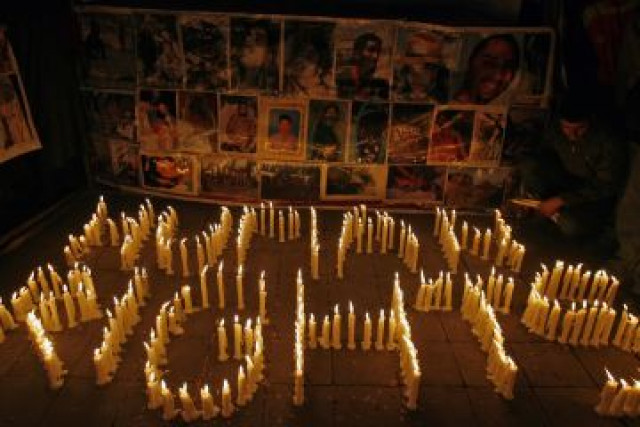Freedom of movement
Being a Pakistani citizen gives you the freedom of unrestricted movement within its territory.

Being a Pakistani citizen gives you the freedom of unrestricted movement within its territory.PHOTO: REUTERS/FILE
Freedom of movement from one place to the other is a universally acknowledged right and personal liberty.
However, in Pakistan, growing terrorism and violence have led its main cities to become heavily barricaded. The question that arises then is: to what extent does one enjoy freedom of movement?
Laws
Being a Pakistani citizen gives you the freedom of unrestricted movement within its territory. The right of unrestricted movement - via walking, driving, riding or flying - enjoys the highest place in the chapter of fundamental rights mentioned in Part-II of the 1973 Constitution.
Article 15 reads: “Every citizen shall have the right to remain in, and, subject to any reasonable restriction imposed by law in the public interest, enter and move freely throughout Pakistan and to reside and settle in any part thereof.”
This means you’re free to use a footpath, a public street, service lane, main artery or highway around any locality, city or province. However, in the prevailing law and order situation, such liberties have often been compromised in the name of security.
From the federal capital of Islamabad to the port city of Karachi, millions face some sort of restriction or hindrance.
Sometime these bars are placed by official authorities in the name of security; barriers at entry and exit points of particular locations and at the borders of a city. In other areas, law enforcers have covered public footpaths and portions of public roads to protect their offices from any attack from anti-social elements.
Other restrictions are placed privately. Take the example of different localities of Karachi, where public streets and lanes are barricaded and many are permanently closed for the public.
The officials and private individuals concerned offer plenty of justifications, but the fact remains that the law describes such restrictions as ‘wrongful restraint’. Therefore, anyone found involved in placing such illegal and unauthorised restrictions on free movement is liable to be prosecuted for a criminal offence.
The penalty
Section 339 of the Pakistan Penal Code (PPC) reads: “Whoever voluntarily obstructs any person so as to prevent that person from proceeding in any direction, in which that person has a right to proceed, is said to wrongfully restrain that person.”
A judicial magistrate may award a sentence of a month’s simple imprisonment, or may choose to impose a fine that may extend to Rs1,500, instead of or along with the prison sentence.
However, such convictions are rare since a majority of the people are unaware of their rights, says Muhammad Abdul Azeem, a doctoral research scholar at the University of Karachi.
PPC’s Section 339 does provide an exception to ‘a private way over land or water, which a person in good faith believes to have a lawful right to obstruct’ and claims that doing so ‘is not an offence within the meaning of this section’.
Precedence
During recent years, the superior courts have taken notice of the violation of the citizens’ freedom of movement. In 2011, then Supreme Court chief justice Iftikhar Muhammad Chaudhry took suo motu notice of the violations of residents’ fundamental rights; one of them through the division of the city’s localities into ‘no-go zones’ for people of one ethnicity or the other.
In its detailed judgment, which was in excess of 250 pages, the apex court had ordered the police and Rangers to immediately remove such no-go areas.
The Sindh High Court (SHC) - while hearing a petition against blockades on Court Road, Sharae Kamal Ataturk and the roads around Bilawal House - had asked the local government to “obey the Constitution and law in terms of Article 15 of the Constitution, which ensures freedom of movement and take measures to protect dignitaries”.
This is not an isolated case. Another SHC bench, while hearing the lawsuits instituted by the owners of various restaurants, had ordered the Defence Housing Authority to remove illegal barricades placed on roads leading to Do Darya area.
Published in The Express Tribune, June 11th, 2014.



















COMMENTS
Comments are moderated and generally will be posted if they are on-topic and not abusive.
For more information, please see our Comments FAQ